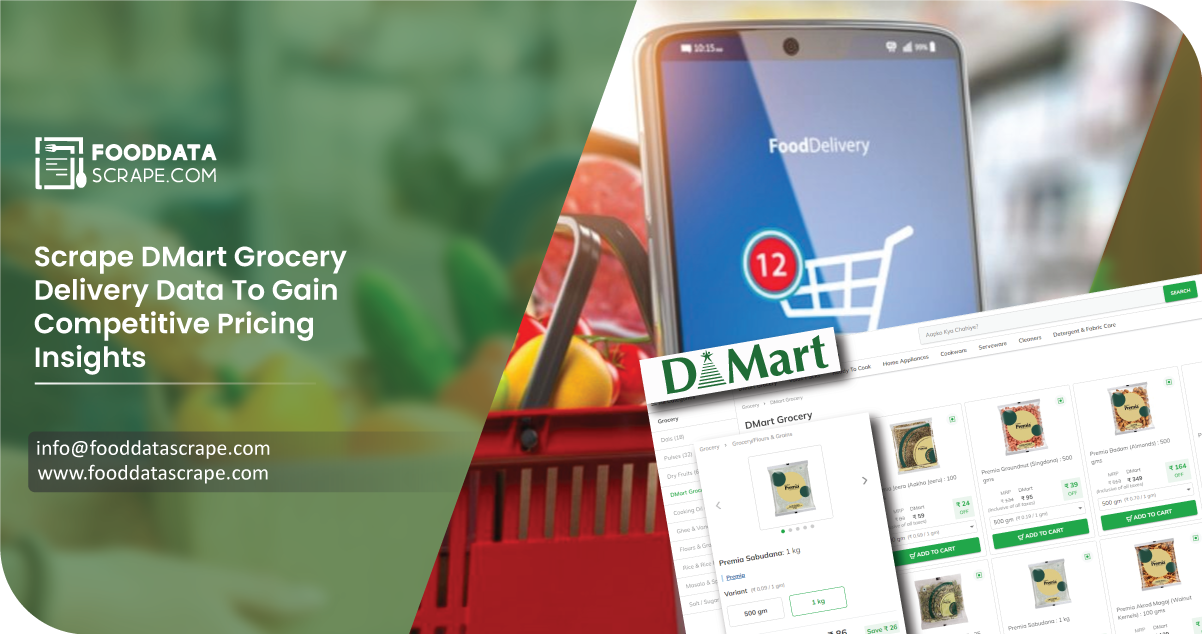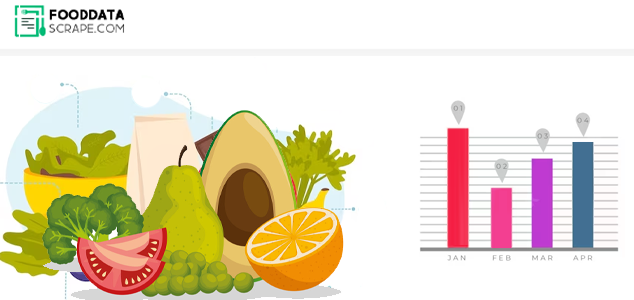The Client
Our renowned online grocery client sought enhanced pricing strategies and increased sales. Employing our expertise, we harnessed the power of grocery data scraping services to collect valuable insights. This initiative enabled us to optimize their pricing strategies, aligning them with market trends—the result is a boost in sales and a competitive edge in the online grocery sector. Our tailored data scraping approach proved instrumental in driving efficiency and profitability for our client's e-commerce venture.
Key Challenges
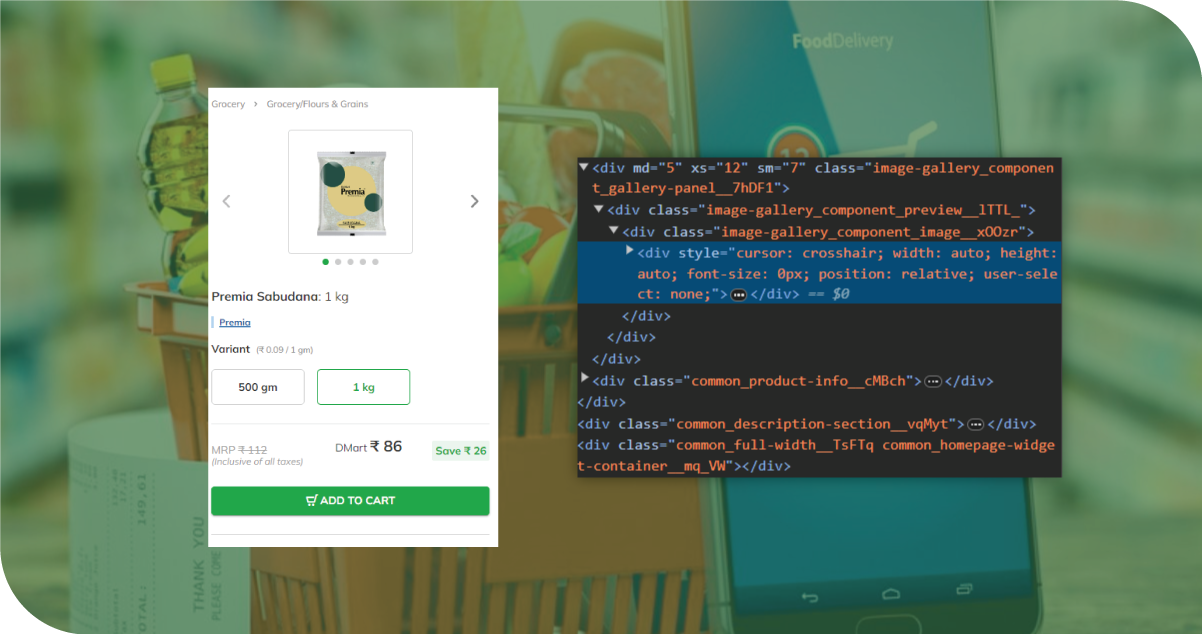
DMart's grocery website posed challenges with CAPTCHA, requiring innovative solutions to automate interactions while avoiding detection. Overcoming these verification barriers was crucial for seamless and uninterrupted data scraping operations.
The implementation of advanced anti-bot measures by DMart presented a unique hurdle. Crafting scraping strategies that mimic human-like interactions became essential to navigate these protective measures and access the desired grocery data.
The reliance on JavaScript for dynamic content rendering on the website added complexity. Effectively scraping data from dynamically loaded elements demanded sophisticated techniques to ensure comprehensive coverage and accuracy in the extracted information.
DMart's extensive product range and SKU complexity introduced challenges in standardizing scraped data. Dealing with variations in product information formatting and SKU structures required meticulous data parsing and cleaning processes to deliver coherent and usable results.
Key Solutions
Our advanced grocery data scraper implemented an advanced CAPTCHA-solving mechanism using machine learning algorithms to automate verification. It allowed for the seamless handling of CAPTCHAs, ensuring uninterrupted scraping operations while adhering to ethical standards.
We developed a sophisticated anti-bot evasion strategy involving randomized user behavior simulation, mimicking human interaction patterns to scrape DMart grocery delivery data. This approach bypassed DMart's anti-bot measures, ensuring smooth and undetected scraping.
We used headless browser automation to render JavaScript content dynamically, enabling comprehensive data extraction from dynamically loaded elements. It ensured accurate and up-to-date information retrieval, overcoming the challenges posed by JavaScript-based rendering.
Our grocery delivery data scraping services implemented advanced data cleaning algorithms and pattern recognition techniques to standardize information. We developed scripts to handle diverse product information formats and SKU structures, ensuring uniformity in the extracted data for meaningful analysis and application.
Methodologies Used
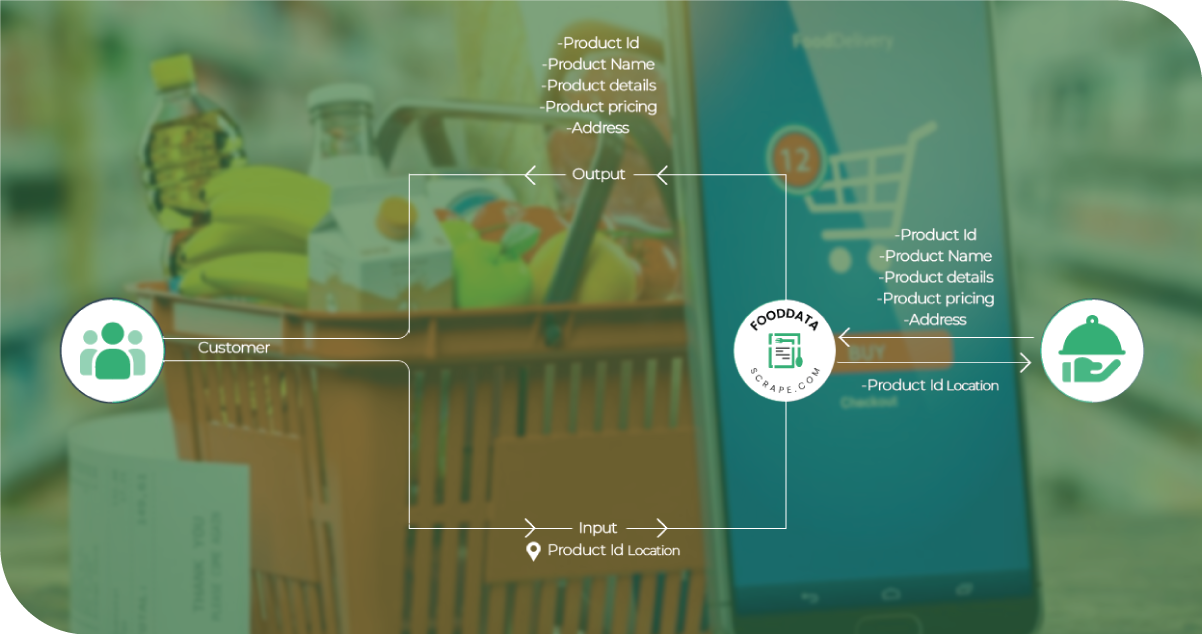
API Integration: Integrated DMart's available APIs directly into our scraping process, allowing for a more structured and efficient extraction of grocery data. This method ensured compliance with DMart's data access policies while streamlining the retrieval of targeted information.
Browser Extensions: Developed custom browser extensions tailored for data extraction on the DMart website. These extensions facilitated seamless interaction with the site, enabling precise data selection and extraction directly from the user interface.
Machine Learning Algorithms: Employed machine learning algorithms to adapt scraping patterns dynamically. This data-driven approach allowed for continuous learning and adjustment, enhancing the adaptability of our scraping methodologies to changes in DMart's website structure.
Parallel Processing: Implemented parallel processing techniques to enhance scraping speed and efficiency. We distributed tasks across multiple threads or processes, enabling faster extraction of large volumes of grocery data from DMart and optimizing the overall scraping performance.
Content Delivery Network (CDN) Management: Managed interactions with DMart's CDN to optimize data retrieval. By strategically handling CDN requests, we mitigated latency issues, ensuring swift and reliable access to grocery data while maintaining compliance with DMart's content delivery infrastructure.
Behavior Simulation: Simulated human-like behavior during scraping operations. It involved randomizing user agent strings, mimicking mouse movements, and introducing pauses between requests to emulate natural browsing patterns, reducing the likelihood of detection.
Scalable Cloud Infrastructure: Leveraged scalable cloud infrastructure, such as AWS or Google Cloud, to ensure the scraping process was reliable and scalable. This approach facilitated the efficient handling of varying data loads and maintained consistent performance throughout the scraping operation.
Advantages of Collecting Data Using Food Data Scrape
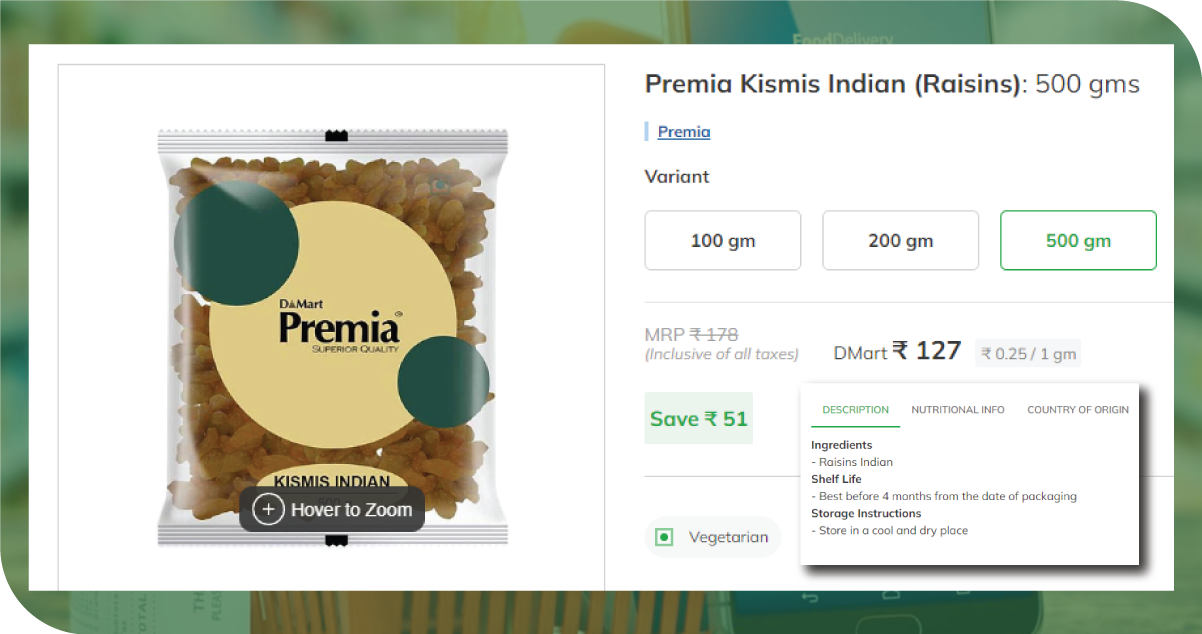
Data Collection: A Food Data Scrape plays a crucial role in collecting diverse and extensive data related to groceries from various online sources. It includes product details, prices, availability, and customer reviews.
Market Insights: By scraping grocery data, this company provides valuable market insights to retailers, manufacturers, and other stakeholders. This information helps understand consumer preferences, trends, and demand fluctuations, enabling businesses to make informed decisions.
Competitor Analysis: Food Data Scrape company assists businesses in monitoring and analyzing their competitors' offerings. Scraping data from different grocery platforms provides a comprehensive view of the market landscape, allowing companies to strategize and stay competitive.
Price Tracking: Grocery prices are dynamic and can change frequently. The company helps in real-time price tracking, enabling businesses to adjust their pricing strategies based on market trends and competitor pricing.
Inventory Management: By scraping product availability and stock level data, these companies aid in effective inventory management. It ensures that retailers maintain optimal stock levels, preventing overstock and stockouts.
Promotion and Marketing Strategies: Analysis of scraped data allows businesses to identify successful promotional strategies in the market. This information helps design effective marketing campaigns and promotions to attract customers and boost sales.
Consumer Behavior Analysis: The company contributes to understanding consumer behavior by extracting and analyzing data on customer reviews, preferences, and purchasing patterns. This information is valuable for tailoring products and services to meet consumer expectations.
Customized Solutions: It offers customized solutions based on the specific needs of its clients. Whether it's a focus on a particular product category, region, or market segment, these companies tailor their scraping activities to provide relevant and targeted data for their clients.
Final Outcome: We adeptly extracted pricing information from Dmart, providing invaluable assistance to our client. We retrieved accurate and comprehensive data through meticulous web scraping, enabling our clients to make informed decisions and gain a competitive edge in the market. Our proficiency in data extraction ensures that we deliver actionable insights, empowering businesses to optimize strategies and stay ahead in the dynamic retail landscape.
























































































